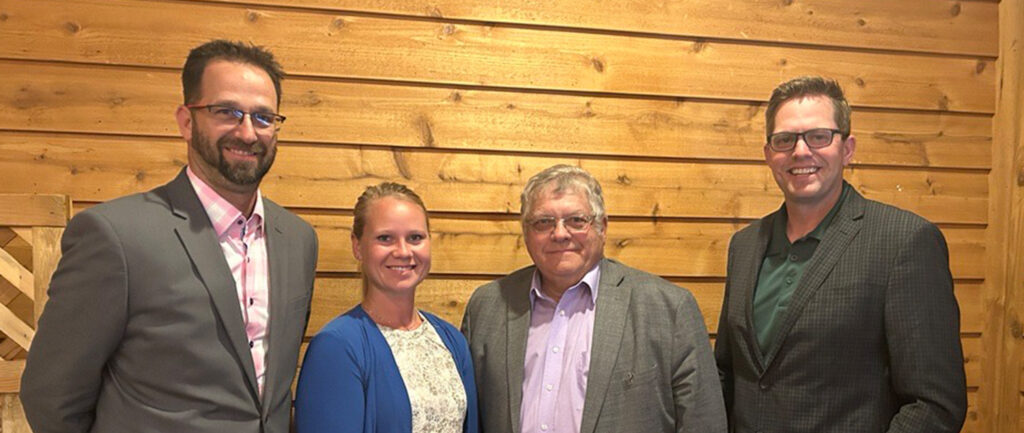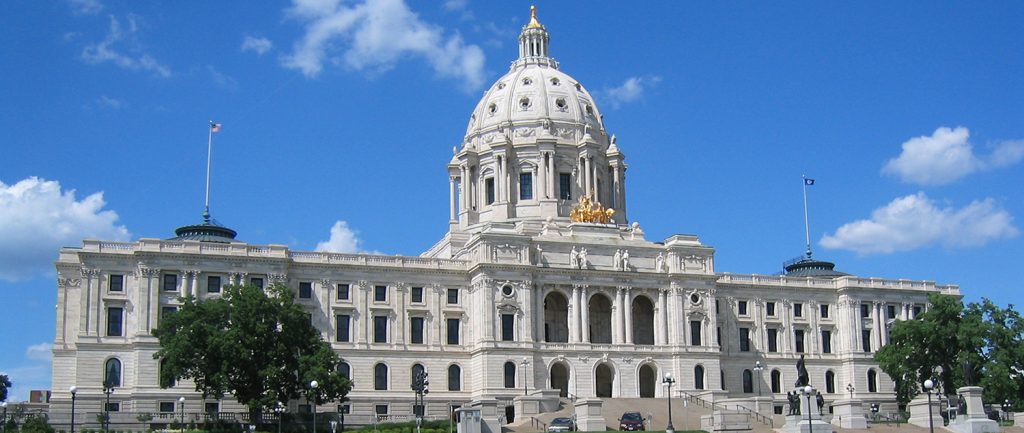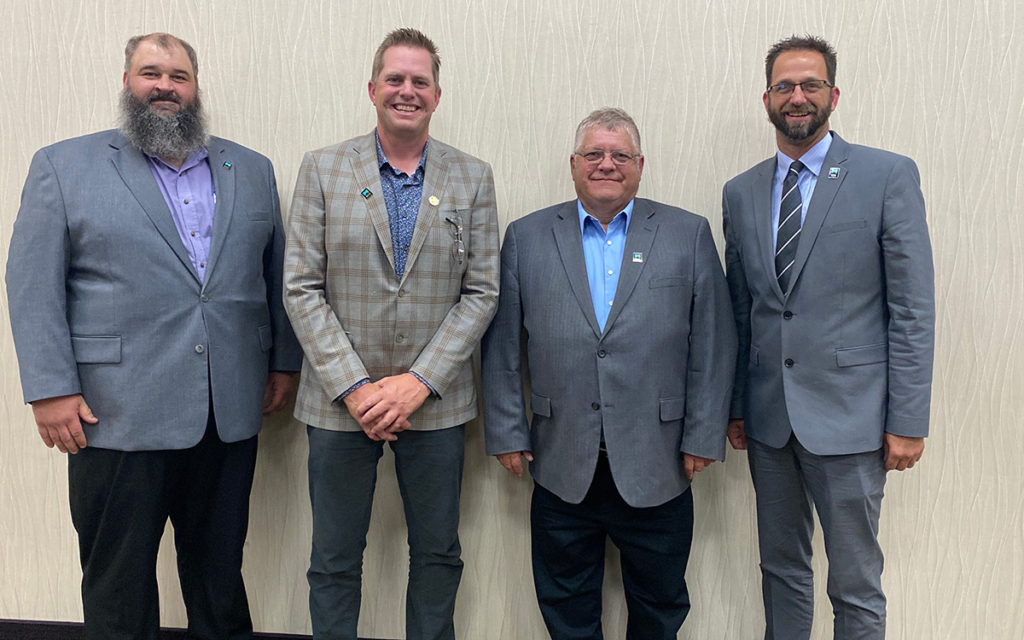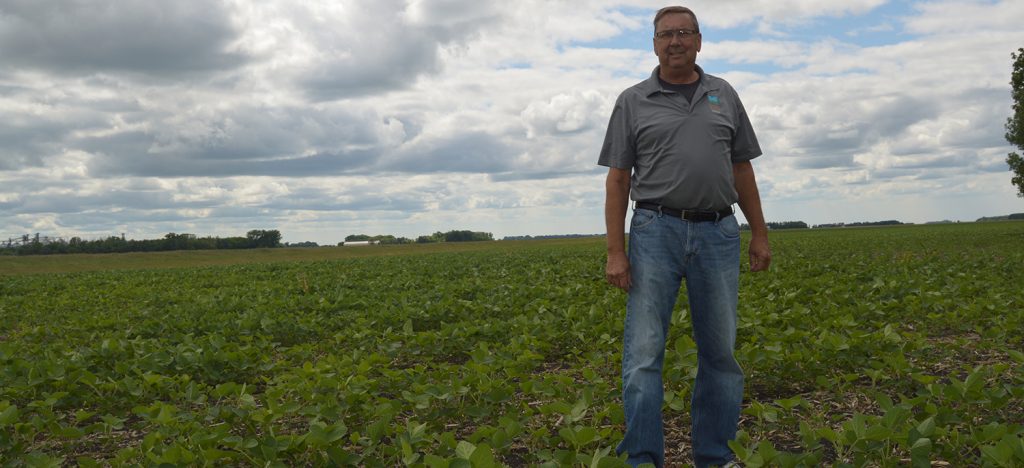When she looks back on her two years as Minnesota Soybean Growers Association president, Jamie Beyer joked her term might require an asterisk in MSGA’s history book to signify the oddity of the years 2019-2021.
“We can call it ‘The Online Presidency,’ or ‘The Zoom Presidency,’” Beyer said from her farm in Wheaton. “It’s been a weird past year.”
After two years leading MSGA, Beyer plans to step down from the big seat during MSGA’s July board meeting, the organization’s first full in-person board meeting in more than a year. The following day, farmer-leaders are scheduled to gather at the 2021 Biodiesel Open.
“It’ll be fun to get together,” she said during the final weeks of her presidency. “I’ve talked to many of our county directors on the phone, but it will be really good to see people. There will be lots of hugs. You don’t know how much you miss people until you see them again.”
Beyer succeeded Michael Petefish as president in summer 2019 while Minnesota farmers were mired in a prolonged trade war with China. The news in ag country was mostly grim. Between depressed commodity prices, a rural mental health crisis and weather issues, the media narrative wasn’t a positive one for farmers, but the media requests – from local outlets to the South China Morning Post – rolled in just the same. At one point, CNN nearly shuttled Beyer from her west-central Minnesota farm to a Twin Cities TV studio for a short interview.
“We had constant interview requests,” she said. “There were a lot of ups and downs, and you had always had to be prepared for another call.”
By early 2020, Beyer had eased into her role. In January, farmers exhaled as pen was put to paper on the China Phase One trade deal. That was followed by ratification of the USMCA. Beyer ran her first annual meeting at the 2020 MN AG EXPO, introducing Gov. Tim Walz on the trade show stage. In early March, she led Minnesota’s delegation at Commodity Classic, and two weeks later drove the three hours from Traverse County to the Capitol in St. Paul for MSGA’s annual Hill Visit.
Then, within days the pandemic effectively shut down the state. Beyer’s presidency transitioned to a virtual format. Like it or not, she was forced to become familiar with Zoom and other electronic forms of communication, along with MSGA’s board. For the foreseeable future, board meetings, conversations with commodity groups and advocacy efforts were all conducted virtually.
“Left to our own devices, I think most of us wouldn’t have learned Zoom,” she said. “It’s work either way – just a different kind of work.”
MSGA Executive Director Joe Smentek said Beyer’s steady leadership and preparation helped the nonpartisan organization navigate an unprecedented year.

“Despite everything going on in the last year, Jamie always had a firm grasp of the issues and MSGA’s stance on a particular policy,” he said. “She faced a lot of challenges over the past two years and always rose to the occasion.”
Valuing MSGA
Beyer and MSGA went to work for farmers throughout the onset of COVID-19, helping to secure critical resources for growers and livestock producers during spring 2020. On the legislative side, MSGA scored one of its biggest legislative priorities last fall when Section 179 tax conformity passed with bipartisan approval. In October, Beyer attended the Ag Innovation Campus groundbreaking ceremony in Crookston alongside city leaders and Gov. Walz. As a silver lining, MSGA hosted the governor, House Speaker Melissa Hortman and Senate Majority Leader Paul Gazelka at its 2021 virtual annual meeting.
“I think we were able to speak with more legislators than we had in the past because we didn’t have the travel time between office visits,” she said. “It was good as it could be.”
Throughout her presidency, Beyer came to further appreciate how effective MSGA and other farm groups are at protecting and promoting policy at the Capitol.
“I value this association more than I ever have,” she said. “When you look at the type of legislation that’s been pushed this year in Minnesota and nationally, there aren’t big (lobbying) groups of people advocating for farmers. It’s extremely small.”
By the time her presidency ended, soybean prices had reached levels not seen in a decade, and soy exports to China returned to pre-2018 levels. The mother of three teenage daughters, Beyer said she’ll remain on MSGA’s governing committee and plans to focus on her advocacy at the grassroots level. She helped start the Traverse County Corn and Soybean Growers Board and hopes to assist the board in becoming more active.
“I’m looking forward to having that local engagement,” she said. “I see so much opportunity to do more and expand.”
Beyer said she’s excited to see emerging leaders step into bigger roles with MSGA. The advocacy talent pool is deep, she said.
“There’s so much opportunity at the state level to educate and influence policy makers,” she said. “We have really strong directors – we don’t lack for leadership. I can see multiple candidates for president in the future, and that’s a good sign of a healthy organization, one that invests heavily in developing farmer-leaders.”





